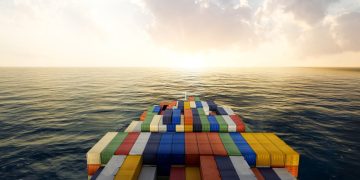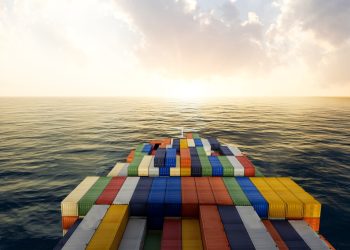The Annual Report 2022-2023 of the Union of Greek Shipowners has been released, which it provides an in-depth analysis of the sector’s most important developments in maritime policy.
In particular, the report includes relevant statistics and data which emphasize the crucial role of Greek shipping at a national, European and global level.
According to the UGS Annual Report 2022-2023:
- Greece continues to be the world’s largest shipping country, as Greek shipowners control 21% of the global tonnage with a total of 5,520 ships.
- The importance of Greek shipping is even more significant for the EU, as Greek interests control more than 70% of the EU-controlled fleet for the types of vessels of strategic importance. The Greek-owned fleet contributes drastically to ensuring the food security and energy autonomy of the European Union.
- The Greek shipping community invests heavily in new, more advanced ships and technologies which improve efficiency and minimize the industry’s environmental footprint.
Greek shipping is the main facilitator of the transport of essential goods accounting for:
- 31.27% of the world oil tanker fleet
- 25.32% of the world bulk carriers
- 22.65% of the world Liquefied Natural Gas (LNG) carriers
- 15.79% of the world chemical & product tankers
- 11.46% of the world Liquified Petroleum Gas (LPG) carriers
- 8.92% of the world containerships
According to the report, apart from a major economic activity, shipping is a national asset for Greece contributing to the economy and society in multiple ways.

Global trade and supply chains primarily rely on a well-functioning shipping sector. In an era characterised by instability and unforeseen events, such as the recent COVID-19 pandemic and geopolitical conflicts, it is crucial to ensure a stable regulatory framework and a global level playing field for shipping.
At EU level, therefore, it is crucial to ensure that any EU measure and scheme is in line with global standards and the relevant global legislative framework by the International Maritime Organization (IMO), the International Labour Organization (ILO) etc. This will help to avoid unnecessary financial and administrative
burden for EU shipping and allow it to remain internationally competitive.
As explained, another pillar that ensures the smooth operation of maritime transport is free trade. The international rules-based trade regime under the World Trade Organization (WTO) and the conclusion of free trade agreements enable the flow of goods around the globe. The EU should continue to agree trade deals
with third countries and regions, covering also maritime transport services and facilitating the global activities of the EU-controlled fleet.
Ship Finance is crucial for the growth and energy transition of shipping
Shipping needs access to sufficient finance for the growth and renewal of the fleet and, as a hard-to-abate sector, to facilitate its decarbonisation. The EU framework on ship financing should be conducive to serving this goal and ensuring the competitiveness of EU shipping.
In banking finance, the EU prudential rules for banks are currently very restrictive, without taking into account the specific features and the financial risk profile of ship financing. It is, therefore, essential to promote those institutional meαsures at the EU level that will ultimately reverse the downward trend in ship financing.
The Human Element
The COVID-19 pandemic brought vividly to the fore the importance of the human element in shipping. During this period, seafarers contributed immensely to the uninterrupted continuation of global maritime trade, without, however, the necessary and due acknowledgement by the international community. Seafarers’ role as key workers and unsung heroes during severely adverse global trading conditions must be recognised with concrete measures.
According to the report, the EU institutions have adopted the revised EU ETS Directive extended to include international shipping in a controversial regional scheme putting on shipping companies, and in particular SMEs, a serious financial and administrative burden. Positive elements in the revised Directive, are the provision for application of the “polluter pays” principle – making a ship’s commercial operator responsible for the cost of compliance – and the earmarking of part of the revenues generated from shipping for the decarbonisation of the sector. Hopefully, these revenues will balance out the price difference between conventional marine fuels and new compliant fuels in a cost-effective way.
A review clause to align the Directive with a future global regulation, that is currently being examined at the IMO, is another positive element which will ensure a smooth energy transition of shipping to carbon neutrality by the middle of this century with minimal market distortion.
“In the current challenging environment, it is vital we work together with a common vision. Concerted and concrete actions are required to maintain our historical seamanship and advance our industry, whilst in parallel maintaining our leadership and positioning ourselves for an ever-changing global status quo.
..said Ms. Melina Travlos, the President of the Union of Greek Shipowners.




































































